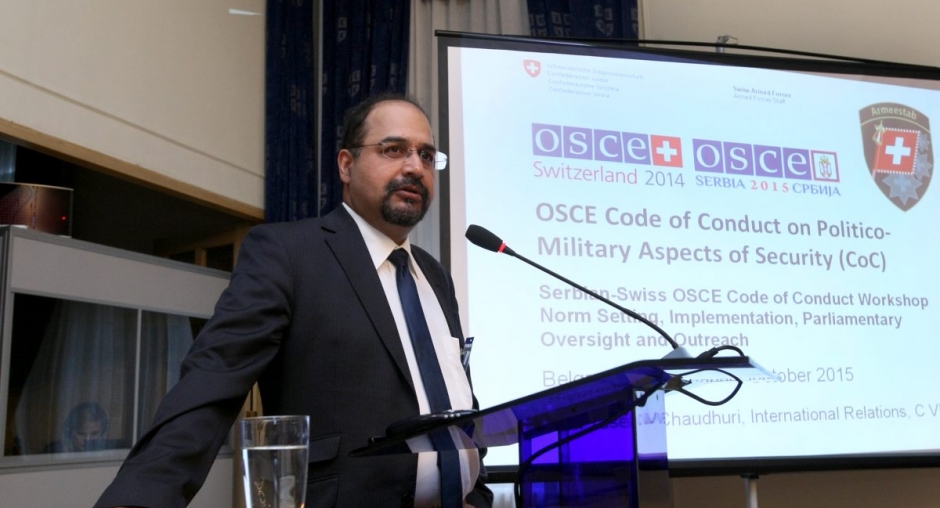



| Friday, 09 October 2015. | |
| Security challenges require more effective implementation of OSCE Code of Conduct, say participants of Belgrade workshop | |
| + larger fontnormal font- Smaller font |
 Modern security challenges highlight the need for the more effective implementation of the OSCE Code of Conduct on Politico-Military Aspects of Security and therefore raising awareness among military personnel and staff officers, diplomats and civil society representatives about this document is vital, said participants of a four-day joint Serbian-Swiss workshop that concluded today in Belgrade. Modern security challenges highlight the need for the more effective implementation of the OSCE Code of Conduct on Politico-Military Aspects of Security and therefore raising awareness among military personnel and staff officers, diplomats and civil society representatives about this document is vital, said participants of a four-day joint Serbian-Swiss workshop that concluded today in Belgrade.The event which provided an opportunity to review more than twenty years of existence and implementation of the Code brought together 60 participants from more than twenty participating States including Partners for Co-operation. They exchanged views and discussed the implementation of the Code, including norm setting, parliamentary oversight and outreach. In his opening address the State Secretary of Serbia' Ministry of Defence Zoran Djordjevic noted the importance of the Code as a mechanism "which can contribute to preventing crises and conflicts, mitigating their effects and stabilizing the situation in the areas where they are now current in an objective and fair manner." "Given the complexity of the current military-political situation in the world, the importance of the implementation of this document with consistent and equal respect for the interests of all OSCE participating States is more than evident," said Djordjevic. Jean-Daniel Ruch, Ambassador of Switzerland to Serbia, reminded that for more than twenty years the Code remains an unparalleled document for democratic control of the armed forces. He also noted that given the current security challenges, "Education, awareness-raising and enhancing the efficiency of implementing the Code of Conduct is of high importance." The need to strengthen broad co-operation in implementing the Code and involving diplomats, representatives of the military forces and civil society was particularly stressed. The Serbian-Swiss workshop was facilitated by the OSCE Conflict Prevention Centre and assisted by the OSCE Mission to Serbia. The OSCE Mission to Serbia has been a long-standing supporter of implementing the Code of Conduct in Serbia, working with relevant ministries, parliamentary committees and civil society. The OSCE Code of Conduct, adopted in 1994 in Budapest, represents a landmark in security sector governance, by obliging participating States to provide for democratic oversight of their armed, internal, paramilitary, intelligence and police forces. The Code of Conduct also includes key principles on relations between states. States are obliged to ensure that their armed forces remain politically neutral and to guarantee that the human rights of security personnel are respected. States report back on national practices annually, helping to build confidence and security in the OSCE region. Photo by:OSCE/Milan Obradovic |